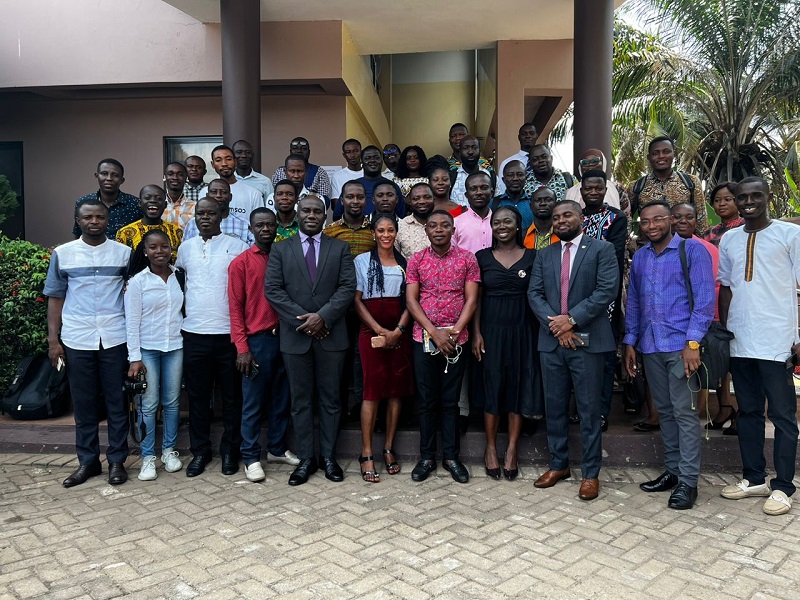
The Financial Intelligence Centre has drafted in seasoned journalists to beef up its scope of surveillance against money laundering, tax evasion, illicit trade in firearms and potential financing of terrorism activities.
This is part of efforts to consolidate Ghana’s gains after getting delisted from the global list of high-risk money laundering and terrorist financing countries published by the global watchdog Financial Action Task Force (FATF) and the European Union.
Addressing journalists in one of two separate trainings held for some 80 participants from the Ashanti, Bono, Ahafo and Bono East Regions; Head of Compliance Unit with the FIC, Seth Nana Amoako underscored the power of journalists in furnishing intelligence institutions with leads they pick on their daily interactions and probes into affairs of communities not readily under the radar of the FIC and its collaborators.
In October 2020 Ghana alongside twenty-two, other countries were placed on the EU’s list of high-risk jurisdictions with strategic deficiencies in their AML/CFT regimes because the country was already blacklisted on the FATF GREY LIST in the year 2018.
Compelled to rid itself of the two uncomplimentary lists, Ghana enacted a raft of punitive immigration, anti-terrorism and financial regulation legislation to criminalize money laundering and fight related crimes of terror financing earning it a renunciation from the FATF list in June 2021.
With this feat, the EU cleared Ghana of its heightened risk profile In January 2022 taking into cognizance Ghana’s commitments to the FATF action plan, with a view of removing strategic deficiencies identified under the 4th Anti-money Laundering Directives in record time.
Mr. Seth Nana Amoako however pointed out that the FIC continues to heighten its reconnaissance as criminal elements continue to explore more avenues to either launder money or reverse licit gains into financing the crimes of terrorism, narcotic drug trade and other prohibitive enterprises.
Journalists were exposed to the legal regimes governing Anti – Money Laundering and Terrorism Financing; the undercurrents driving such activities; the manifestations of Money Laundering and other Financial and Environmental Crimes and the Sanctions for direct and indirect participation and abetment.
The reporters were further schooled in the processes of identifying, assessing, and reporting Suspicious Transactions and Suspicious Actions identified in their line of work.
Senior Security Analyst and Deputy Manager FIC, Sean Henry Osei pointed out that the Financial Intelligence Centre played a critical role in ensuring that government not only has plans for technical compliance but effectively operationalizes all the technical provisions stipulated in its strategies for monitoring and plugging all loopholes available for potential exploitation for AML and FT activities.
He asked journalists to take advantage of its reporting systems with assurances that the Financial Intelligence Centre has tied in its reporting software GOML to platforms of reporting entities; law enforcement agencies, investigating bodies; regulators, competent agencies; private sector and recognized non-financial businesses and professions.
The Financial Intelligence Center established by the Anti-Money Laundering Act, 2008 (Act 749) exists to work with government to Assist in the identification of proceeds of unlawful activity; Assist in the Anti-money laundering fight; combat the financing of terrorism; Financing the proliferation of weapons of mass destruction; Tax evasion, and any other related unlawful activity.
The FIC further works with global watchdog agencies including Financial Action Task Force (FATF); GIABA, EGMONT GROUP, ARIN-WA, and FFIUs to access information concerning crimes occurring beyond borders.
By: Ivan Heathcote – Fumador.
